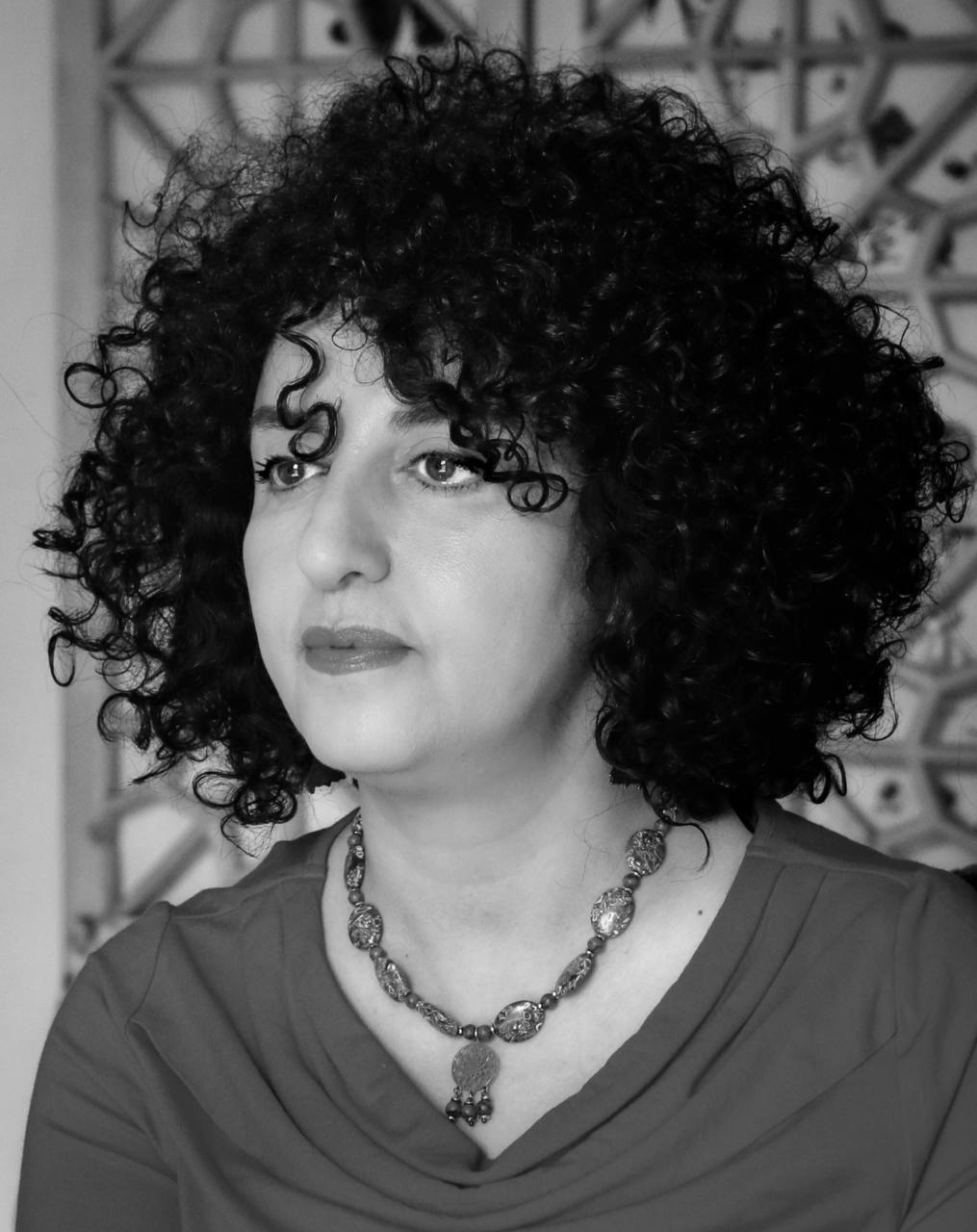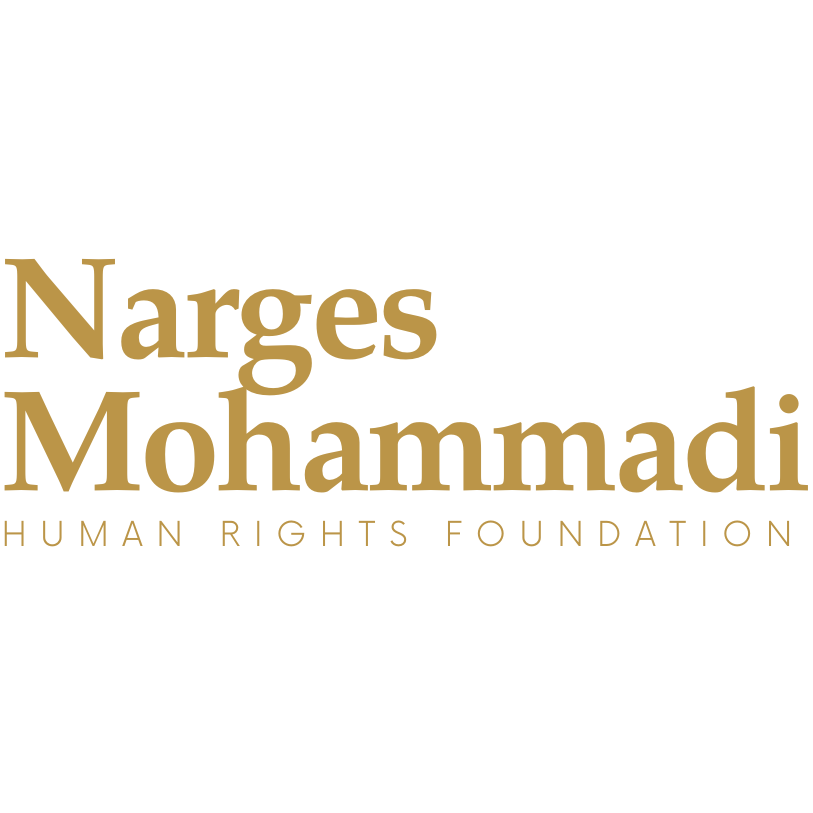
“If I am imprisoned again, I will continue to fight in whatever way I can from inside the prison,” Narges Mohammadi declares in an interview with Expressen.
Narges Mohammadi faces the constant threat of being arrested again by the Iranian regime. Yet, the Nobel Peace Prize laureate remains steadfast in her fight for women’s rights in her homeland.
Narges Mohammadi Interviews Expressen Sweden on 18th January 2025
“If I am imprisoned again, I will continue to fight in whatever way I can from inside the prison,” she declares in an interview with Expressen.
On December 4, 2024, Nobel Peace Prize laureate Narges Mohammadi—a renowned human rights and women’s rights activist, as well as a journalist—was granted a 21-day temporary leave from Iran’s Evin Prison due to her deteriorating health. Although her lawyers initially advised her against giving interviews during this suspension of her sentence, she chose to speak with Expressen about her ongoing struggle and the resilience of the “Woman, Life, Freedom” movement, which she believes is stronger now than ever before.
“I have always said that the dictatorial religious regime must be overthrown and replaced with a democratic system,” she states firmly.
For her unyielding determination and relentless activism, Mohammadi has endured prolonged periods of imprisonment. The shadow of incarceration constantly looms over her, making every public statement an act of both courage and defiance.
“The first time I was arrested in front of my children, Ali & Kiana were only three and a half years old. I am certain that the experience left deep scars on them,” she reflects.
She recounts the harrowing memories of her twins, Ali and Kiana, witnessing her being taken from their home in the middle of the night. The trauma repeated itself when the children were five years old. At that time, Mohammadi’s husband Taghi Rahmani were forced to live in exile, leaving her alone with the children when regime forces stormed her home and arrested her.
“It has now been ten years since my children left the country in 2015, and I have not seen them since,” she says. Despite this, she remains resolute, expressing hope that one day she will reunite with her children in a free Iran. Now 18 years old, her children live in France with their father.
Narges Mohammadi has become a symbol of the struggle for women’s rights in Iran. Her tireless commitment was recognized with the Nobel Peace Prize in 2023, but her sacrifices have been immense. During her time in prison, she has undergone four surgeries, a testament to the physical toll of her ordeal.
In her video responses to Expressen, Mohammadi sits on a chair in her home, her calm demeanor belying the weight of her words. Behind her, two framed photographs are visible. One shows Mahsa Jina Amini, the young woman whose death in September 2022 ignited widespread protests and became the rallying cry for the “Woman, Life, Freedom” movement. The other photograph is from the Nobel Peace Prize ceremony in Norway in 2023. In the image, her two children stand with dignified expressions. Between them, however, is a poignant symbol of absence: an empty chair – the one Narges Mohammadi would have occupied, had she been free.
Mohammadi faces the camera with a calm and composed expression as she responds to Expressen’s questions. She is unveiled, her nails painted a bold red, and her face lightly made up – a striking defiance of the strict rules governing women’s public appearance in Iran.
She speaks with unwavering clarity about the regime’s growing fear of the “Woman, Life, Freedom” movement, a force that has only strengthened over the past three years. While the protests that erupted in the autumn of 2022 were massive and powerful, the resistance has since evolved into new, innovative forms. Men and women alike have joined the fight, unified in their demand for change.
“The movement has learned to adapt and discover new paths to achieve its goals,” Mohammadi explains, offering several compelling examples:
The woman who boldly defied Iran’s dress code by removing her clothing at a university captured widespread international attention in early November 2024. A few weeks later, singer and activist Parasto Ahmadi made headlines when she performed without covering her hair, a powerful act of resistance. The news of these courageous acts spread across the globe with remarkable speed.
Mohammadi believes these moments represent a significant shift in the fight for justice. “The Iranian people’s message is now reaching the entire world,” she says, highlighting the global resonance of their struggle.
She underscores the urgent need for the international community to stand with the Iranian people in their struggle, insisting that gender apartheid must be recognized as a crime by the United Nations.
To highlight the strength and gravity of this fight, Narges Mohammadi shares a powerful story about a conversation she had with Kurdish journalist and activist Pakhshan Azizi that very day, Azizi received the devastating news that Iran’s Supreme Court had upheld her death sentence, leaving no possibility for appeal. Yet, despite the finality of her fate, Azizi displayed no fear of death.
“As long as we resist, we are alive,” Mohammadi reflects, emphasizing that this truth resonates not only with herself and Pakhshan Azizi but with everyone who continues to fight for freedom and justice.
Narges Mohammadi highlights the dire situation of political prisoners in Iran.
“We have no clear understanding of how many people are imprisoned simply for their opinions or political activism,” she says.
“Many are held in secret locations, beyond the reach of traditional prisons.”
She reveals that several such clandestine facilities exist in Tehran, adding that the Islamic Republic not only detains individuals to suppress protests but also uses them as bargaining chips for prisoner exchanges with other countries.
Reflecting on her own experience, Mohammadi recounts how she was sent back to prison just two days after undergoing a major operation to remove a tumor from her right leg muscle. Her condition deteriorated so severely during her 22 days of incarceration that she was granted temporary release to seek medical care.
“I will continue the fight, wherever I am,” she declares, resolute in her willingness to sacrifice everything for meaningful change.
Recent acts of defiance in Iran, where women continue to stand up against the regime’s oppressive dress codes, prove that she is not alone. Whether behind bars or free, Mohammadi remains a cornerstone of a growing movement that refuses to be silenced by tyranny.
According to her publisher, Massood Mafan, based in Sweden, Mohammadi is currently working on a new book featuring interviews with 16 Iranian activists. The book is slated for release in Swedish by the end of the summer.
Sara Recabarren for Expressen Sweden
Published on 18th January 2025
.
نرگس محمدی همچنان با تهدید دائمی بازداشت دوباره توسط رژیم ایران مواجه است. با این حال، این برنده جایزه صلح نوبل با استواری به مبارزه خود برای حقوق زنان در وطنش ادامه میدهد.
گفتوگوی نرگس محمدی با اکسپرسن سوئد – ۱۸ ژانویه ۲۰۲۵
او در مصاحبهای با روزنامه اکسپرسن اظهار میدارد:
“اگر دوباره به زندان بیفتم، مبارزه را از درون زندان با هر وسیلهای که بتوانم ادامه خواهم داد.”
۴ دسامبر ۲۰۲۴ محمدی، فعال برجسته حقوق بشر و روزنامهنگار، به دلیل وخامت وضعیت جسمانیاش به طور موقت از زندان آزاد شد. در گفتوگویی ضبطشده از ایران، درباره مبارزات خود و قدرت جنبش “زن، زندگی، آزادی” سخن میگوید، جنبشی که او معتقد است اکنون بیش از هر زمان دیگری قدرتمند شده است.
“من همیشه گفتهام که رژیم دیکتاتوری مذهبی باید سرنگون شود و جای خود را به یک نظام دموکراتیک بدهد.”
محمدی به دلیل ایستادگی بیوقفه و فعالیتهای خستگیناپذیرش، سالها زندان را تجربه کرده است. همواره سایه بازداشت بر سر او سنگینی میکند، و هر اظهارنظر علنیاش اقدامی جسورانه و سرشار از مقاومت است.
“اولین باری که بازداشت شدم، فرزندانم فقط سه سال و نیم داشتند. اطمینان دارم که این تجربه زخمی عمیق بر روح آنها برجای گذاشت.”
او خاطرات دردناک فرزندان دوقلوی خود، علی و کیانا، را به یاد میآورد که شاهد ربوده شدن او از خانهشان در نیمهشب بودند. این کابوس، دو سال بعد، زمانی که فرزندانش پنج ساله بودند، تکرار شد. در آن زمان، همسر محمدی در خارج از کشور بود و او در حالی که تنها با کودکانش زندگی میکرد، با هجوم مأموران امنیتی مواجه شد.
“ده سال از خروج فرزندانم از کشور میگذرد و من دیگر آنها را ندیدهام.”
با این وجود، او همچنان ایستادگی میکند و امیدوار است روزی بتواند در ایران آزاد، دوباره با فرزندانش دیدار کند. علی و کیانا اکنون ۱۸ سالهاند و همراه با پدرشان در فرانسه زندگی میکنند.
نماد مبارزه برای حقوق زنان در ایران
نرگس محمدی به نمادی از مبارزه برای حقوق زنان در ایران تبدیل شده است. تعهد خستگیناپذیر او با دریافت جایزه صلح نوبل در سال ۲۰۲۳ مورد تقدیر قرار گرفت، اما هزینههای شخصیاش بسیار سنگین بوده است. او در دوران زندان چهار بار تحت عمل جراحی قرار گرفته است، که نشاندهنده فشار جسمانی شدیدی است که تحمل کرده است.
محمدی در ویدیوی پاسخهای خود به اکسپرسن، بر روی صندلی خانهاش نشسته است. آرامش ظاهریاش وزنهای از سخنان پرمحتوایش را در بر دارد. پشت سر او، دو قاب عکس دیده میشود. یکی، تصویری از مهسا (ژینا) امینی، زن جوانی که مرگش در سپتامبر ۲۰۲۲ جرقه اعتراضات گستردهای را زد و به شعار مرکزی جنبش “زن، زندگی، آزادی” تبدیل شد. عکس دیگر از مراسم اهدای جایزه صلح نوبل در نروژ در سال ۲۰۲۳ است. در این تصویر، دو فرزند محمدی با چهرههایی استوار ایستادهاند، اما در میان آنها نمادی از غیبت او خودنمایی میکند: یک صندلی خالی – صندلیای که نرگس محمدی باید بر آن مینشست، اگر آزاد بود.
محمدی با آرامش و قاطعیت به دوربین نگاه میکند و به پرسشهای اکسپرسن پاسخ میدهد. او بیحجاب است، ناخنهایش را به رنگ قرمز جسورانهای لاک زده و چهرهاش با آرایشی ملایم آراسته شده است – نشانهای آشکار از مقاومت در برابر قوانین سختگیرانه جمهوری اسلامی در مورد ظاهر زنان در فضای عمومی.
ترس رژیم از جنبش “زن، زندگی، آزادی”
محمدی با صراحت از افزایش هراس رژیم از جنبش “زن، زندگی، آزادی” سخن میگوید؛ حرکتی که طی سه سال گذشته، قویتر شده است. او میگوید، اعتراضات گستردهای که در پاییز ۲۰۲۲ آغاز شد، به اشکال جدید و خلاقانهای از مقاومت تکامل یافته است. زنان و مردان، متحدانه در این مسیر پیش میروند و خواهان تغییر هستند.
“این جنبش یاد گرفته است که خود را تطبیق دهد و راههای جدیدی برای دستیابی به اهدافش بیابد.”
او چند نمونه برجسته از این تغییرات را ارائه میدهد:
در نوامبر ۲۰۲۴، زنی که در دانشگاه حجاب خود را برداشت، توجه جهانی را به خود جلب کرد. چند هفته بعد، پرستو احمدی، خواننده و فعال اجتماعی، بدون پوشش سر روی صحنه رفت – اقدامی پرقدرت و نمادین. اخبار این اقدامات جسورانه با سرعتی بیسابقه در سراسر جهان منتشر شد.
“پیام مردم ایران اکنون به گوش تمام جهان رسیده است.”
او بر لزوم حمایت جامعه بینالمللی از مردم ایران تأکید میکند و خواهان به رسمیت شناختن “آپارتاید جنسیتی” به عنوان یک جنایت از سوی سازمان ملل متحد است.
یک مقاومت بیپایان
برای تأکید بر اهمیت این مبارزه، نرگس محمدی داستانی تأثیرگذار را روایت میکند. او در ۸ ژانویه با پخشان عزیزی، روزنامهنگار و فعال کرد، گفتوگو کرده است. همان روز، دادگاه عالی ایران حکم اعدام عزیزی را تأیید کرد، بدون امکان فرجامخواهی. با وجود این، عزیزی هیچ نشانی از ترس نشان نداد.
“تا زمانی که مقاومت کنیم، زندهایم.”
محمدی میگوید این جمله نهتنها برای خود و عزیزی، بلکه برای همه کسانی که برای آزادی و عدالت میجنگند، صدق میکند.
او همچنین به وضعیت وخیم زندانیان سیاسی در ایران اشاره میکند:
“ما هیچ اطلاعات دقیقی درباره تعداد افرادی که به خاطر عقاید یا فعالیتهای سیاسیشان در زندان هستند، نداریم.”
“بسیاری در مکانهایی مخفی نگهداری میشوند، فراتر از دسترس زندانهای معمولی.”
او فاش میکند که چندین بازداشتگاه مخفی در تهران وجود دارد و رژیم جمهوری اسلامی نهتنها افراد را برای سرکوب اعتراضات زندانی میکند، بلکه از آنها به عنوان ابزار چانهزنی برای مبادله با دیگر کشورها استفاده میکند.
“هرجا باشم، مبارزه را ادامه میدهم”
محمدی درباره تجربیات شخصی خود نیز سخن میگوید. او فقط دو روز پس از یک عمل جراحی بزرگ برای برداشتن تومور از عضله پای راستش، مجدداً به زندان بازگردانده شد. شرایط او در طول ۲۲ روز حبس آنچنان وخیم شد که در نهایت مجبور به آزادی موقت برای ادامه درمان شد.
“هرجا باشم، مبارزه را ادامه میدهم.”
نمونههای جدیدی از مقاومت در ایران، از جمله سرپیچی زنان از قوانین حجاب اجباری، نشان میدهد که او در این مبارزه تنها نیست. چه در پشت میلههای زندان و چه در خارج از آن، نرگس محمدی همچنان یکی از ستونهای اصلی جنبشی است که هرگز در برابر استبداد خاموش نخواهد شد.
کتاب جدید نرگس محمدی
به گفته ناشرش، مسعود مافان، که در سوئد مستقر است، محمدی در حال نگارش کتابی جدید است که شامل مصاحبه با ۱۶ فعال ایرانی خواهد بود. این کتاب قرار است تا پایان تابستان، به زبان سوئدی منتشر شود.
سارا رکابارن | اکسپرسن، سوئد
منتشر شده در ۱۸ ژانویه ۲۰۲۵


